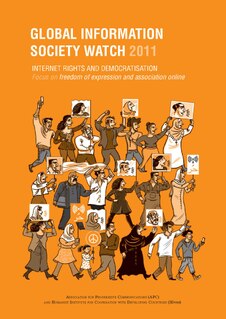Social capital is "the networks of relationships among people who live and work in a particular society, enabling that society to function effectively". It involves the effective functioning of social groups through interpersonal relationships, a shared sense of identity, a shared understanding, shared norms, shared values, trust, cooperation, and reciprocity. Social capital is a measure of the value of resources, both tangible and intangible, and the impact that these relationships have on the resources involved in each relationship, and on larger groups. It is generally seen as a form of capital that produces public goods for a common purpose.
A local community has been defined as a group of interacting people living in a common location. The word is often used to refer to a group that is organized around common values and is attributed with social cohesion within a shared geographical location, generally in social units larger than a household. The word can also refer to the national community or global community. The word "community" is derived from the Old French communauté which is derived from the Latin communitas, a broad term for fellowship or organized society.
The National Civic League is an American nonpartisan, non-profit organization founded in 1894 with a mission to advance civic engagement to create equitable, thriving communities. The League envisions a country where the full diversity of community members are actively and meaningfully engaged in local governance, including both decision making and implementation of activities to advance the common good. It also promotes professional management of local government through publication of "model charters" for both city and county governments.

Robert David Putnam is an American political scientist specializing in comparative politics. He is the Peter and Isabel Malkin Professor of Public Policy at the Harvard University John F. Kennedy School of Government. Putnam developed the influential two-level game theory that assumes international agreements will only be successfully brokered if they also result in domestic benefits. His most famous work, Bowling Alone, argues that the United States has undergone an unprecedented collapse in civic, social, associational, and political life since the 1960s, with serious negative consequences. In March 2015, he published a book called Our Kids: The American Dream in Crisis that looked at issues of inequality of opportunity in the United States. According to the Open Syllabus Project, Putnam is the third most frequently cited author on college syllabi for political science courses.

Bowling Alone: The Collapse and Revival of American Community is a 2000 nonfiction book by Robert D. Putnam. It was developed from his 1995 essay entitled "Bowling Alone: America's Declining Social Capital". Putnam surveys the decline of social capital in the United States since 1950. He has described the reduction in all the forms of in-person social intercourse upon which Americans used to found, educate, and enrich the fabric of their social lives. He argues that this undermines the active civil engagement which a strong democracy requires from its citizens.
The United Nations defines community development as "a process where community members come together to take collective action and generate solutions to common problems." It is a broad concept, applied to the practices of civic leaders, activists, involved citizens, and professionals to improve various aspects of communities, typically aiming to build stronger and more resilient local communities.
Ernesto Cortés, Jr. is the Industrial Areas Foundation (IAF) co-chair and executive director of the West / Southwest IAF regional network.

Civic engagement or civic participation is any individual or group activity addressing issues of public concern. Civic engagement includes communities working together or individuals working alone in both political and non-political actions to protect public values or make a change in a community. The goal of civic engagement is to address public concerns and promote the quality of the community.

Social entrepreneurship is an approach by individuals, groups, start-up companies or entrepreneurs, in which they develop, fund and implement solutions to social, cultural, or environmental issues. This concept may be applied to a wide range of organizations, which vary in size, aims, and beliefs. For-profit entrepreneurs typically measure performance using business metrics like profit, revenues and increases in stock prices. Social entrepreneurs, however, are either non-profits, or they blend for-profit goals with generating a positive "return to society". Therefore, they use different metrics. Social entrepreneurship typically attempts to further broad social, cultural and environmental goals often associated with the voluntary sector in areas such as poverty alleviation, health care and community development.
Social disruption is a term used in sociology to describe the alteration, dysfunction or breakdown of social life, often in a community setting. Social disruption implies a radical transformation, in which the old certainties of modern society are falling away and something quite new is emerging. Social disruption might be caused through natural disasters, massive human displacements, rapid economic, technological and demographic change but also due to controversial policy-making.
Community building is a field of practices directed toward the creation or enhancement of community among individuals within a regional area or with a common need or interest. It is often encompassed under the fields of community organizing, community organization, community work, and community development.

The organization SEKEM was founded in 1977 by the Egyptian pharmacologist and social entrepreneur Dr. Ibrahim Abouleish in order to bring about cultural renewal in Egypt on a sustainable basis. Located northeast of Cairo, the organization now includes:
Lewis M. Feldstein is the Co-Chair of The Saguaro Seminar along with Robert D. Putnam and was President of the New Hampshire Charitable Foundation until June 2010. He collaborates with Putnum and many others on publications and projects such as the Better Together book and website aimed at promoting community and civic engagement.

Making Democracy Work: Civic Traditions in Modern Italy (ISBN 9780691037387) is a 1993 book written by Robert D. Putnam. Published by Princeton University Press, the book's central thesis is that social capital is key to high institutional performance and the maintenance of democracy.

Civic intelligence is an "intelligence" that is devoted to addressing public or civic issues. The term has been applied to individuals and, more commonly, to collective bodies, like organizations, institutions, or societies. Civic intelligence can be used in politics by groups of people who are trying to achieve a common goal. Social movements and political engagement in history might have been partly involved with collective thinking and civic intelligence. Education, in its multiple forms, has helped some countries to increase political awareness and engagement by amplifying the civic intelligence of collaborative groups. Increasingly, artificial intelligence and social media, modern innovations of society, are being used by many political entities and societies to tackle problems in politics, the economy, and society at large.

University of the Middle East Project (UME) is an independent non-governmental organization whose people-to-people exchange programs bring together secondary school educators from across the Middle East and North Africa (MENA) and the United States with the aim of enhancing pedagogical skills and encouraging cross-cultural dialogue and understanding. In the United States, UME is a 501(c)(3) not-for-profit organization, registered as The Center for Higher Education in the Middle East, Inc.
The National Conference on Citizenship (NCoC) is a non-partisan, non-profit organization dedicated to strengthening civic life in America. They pursue their mission through a nationwide network of partners involved in a cutting-edge Civic Health Initiative, annual cross-sector conferences, and engagement with a broad spectrum of individuals and organizations interested in utilizing civic engagement principles and practices to enhance their work. Connecting people for the purpose of strengthening civic life is NCoC's goal. At the core of NCoC's joint efforts is the belief that every person has the ability to help his or her community and country thrive.
The Office of Social Innovation and Civic Participation was an office new to the Obama Administration, created within the White House, to catalyze new and innovative ways of encouraging government to do business differently. Its first director was the economist Sonal Shah. The final director was David Wilkinson.
The Greater Toronto CivicAction Alliance, commonly known as CivicAction, is a non-profit, non-partisan organization based in Toronto that works with senior and emerging leaders from the business, government, labour, academic and community sectors to address urban challenges in the Greater Toronto and Hamilton Area (GTHA) and beyond. The purpose of the organization is to boost civic engagement and build better cities.
Civic technology, or civic tech, enhances the relationship between the people and government with software for communications, decision-making, service delivery, and political process. It includes information and communications technology supporting government with software built by community-led teams of volunteers, nonprofits, consultants, and private companies as well as embedded tech teams working within government.








